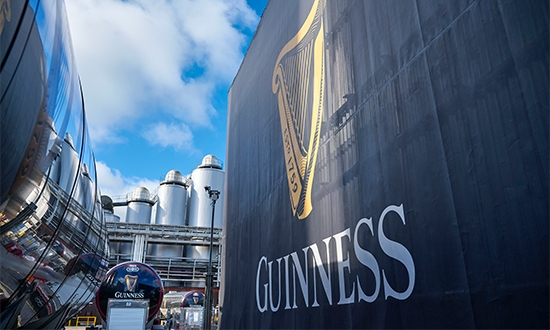Diageo is set to invest over €100 million to decarbonise its historic St. James’s Gate site in Dublin 8, where Guinness has been brewed for 264 years. The investment underpins the goal to accelerate to net zero carbon emissions for the site and will transform energy and water consumption with the aim to make it one of the most efficient breweries in the world by 2030.
The investment was announced at St. James’s Gate by Diageo’s Global CEO, Debra Crew, where she was joined by the Taoiseach, Simon Harris TD, Minister for Enterprise, Trade and Employment, Peter Burke, and the CEO of Enterprise Ireland, Leo Clancy, who are providing Government-backed support for the decarbonisation project.
The investment announcement will enable St. James’s Gate to entirely phase out the use of fossil fuels in its direct brewing operations and reduce Scope 1+2 GHG emissions generated by the site by more than 90%, in line with the Science Based Target initiative’s definition of net zero.
By 2030, the site’s renewable energy strategy will combine the use of grid-supplied electrical power heat pumps; and biogas generated within a new water recovery facility. This facility will also improve water use efficiency and enable a projected reduction in the water used to brew Guinness by 30%.
Diageo is preparing a planning application for this decarbonisation project that will be submitted to Dublin City Council later this year and will be engaging with industry experts, local communities and representatives prior to submitting the application.


